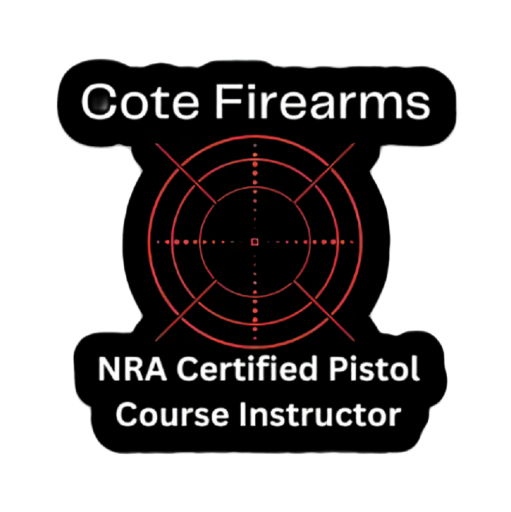New Connecticut Firearms Laws – Updated 2023
After months of discussions and deliberations, Connecticut gun owners now face a series of new legislative measures. Please note that this guide aims to provide an overview, and for precise details and interpretations, it is advisable to consult official sources and legal professionals.
Ban on Open Carry:
Starting October 1, 2023, the practice of “Open Carry” will no longer be legal in Connecticut. Exceptions exist for legal hunters and instances where a firearm becomes momentarily visible (“fleeting glimpses”) or “prints” while concealed. Violations of this law can result in a class B misdemeanor for a first offense and a class A misdemeanor for subsequent offenses. Law enforcement units are required to report annually on any stops conducted based on suspicion of a violation.
Ban on Others/’94 Prebans:
Effective immediately upon signing on June 6, 2023, Connecticut “Others” and pre-1994 “pre-ban” firearms are no longer transferable and are classified as “Assault Weapons.” Individuals who purchased such firearms prior to June 6, 2023, will need to register them and apply for an Assault Weapon Certificate of Possession. The Statewide Firearms Trafficking Task Force (SLFU) is expected to release guidance on this registration process soon.
Three Pistol Limit per Month:
Beginning October 1, 2023, individuals are prohibited from purchasing or receiving more than three handguns within a 30-day period. Certified instructors can acquire up to six handguns within the same period. Exceptions exist for police departments, exchanges of pistols at the same Federal Firearms License (FFL) holder within 30 days, transfers to museums, antique pistols, and transfers between FFLs. Violations of this law constitute a class C felony.
Expansion of “Safe Storage” Requirements:
Effective October 1, 2023, all firearms must be stored securely at all times, even in the absence of minors or prohibited persons on the premises. The law mandates the use of securely locked boxes or containers, or any other method that a reasonable person would consider secure. Criminal negligence in the storage of firearms, leading to access by any person and subsequent injury, can result in legal consequences. Gun owners are not held liable if a firearm is stolen after an unlawful entry to their home, provided the theft is promptly reported.
Body Armor Restrictions:
Starting October 1, 2023, individuals must possess a valid pistol permit, eligibility certificate, long gun permit, or ammunition certificate to purchase body armor, unless they qualify for exemption. Exempt persons include law enforcement officers, judicial marshals, probation officers, National Guard members, armed forces reservists, federal firearms licensees, and emergency medical service employees.
Pistol Permit Course Requirement Expansion:
Effective October 1, 2023, with provisions taking effect on July 1, 2024, new pistol permit applicants must complete a course covering state law requirements related to safe storage in homes and vehicles, lawful firearm use, and lawful carry of firearms in public.
Ghost Guns:
Starting January 1, 2024, possession of un-serialized firearms manufactured after 1968 is prohibited. Firearms produced between December 16, 1968, and October 1, 2019, must be declared to the Department of Emergency Services and Public Protection (DESPP) or be assigned a serial number through DESPP. Violations of this law result in a class C felony for ineligible individuals and a class C misdemeanor for those eligible.
Carrying Loaded Long Guns and “Others” in Vehicles:
Effective July 1, 2023, it is prohibited to carry long guns and “Other” firearms in motor vehicles or snowmobiles, with exceptions for handguns carried by individuals with a valid carry permit. Law enforcement officers, security guards, and service members maintain their existing exemptions.
Large Capacity Magazine Penalties:
Effective October 1, 2023, eligible individuals possessing unregistered Large Capacity Magazines (LCMs) commit a class A misdemeanor, while those ineligible face a class D felony. However, under the “Fix-It” Bill HB6895, individuals who lawfully possessed an LCM prior to January 1, 2014, and have not yet declared possession by July 1, 2023, must apply by January 1, 2024. Guidelines for this process are yet to be established by SLFU.
Expanded List of Prohibited Persons:
Effective October 1, 2023, the list of individuals prohibited from possessing firearms in Connecticut includes those convicted of misdemeanor family violence crimes, fugitives from justice, individuals adjudicated as mentally defective or committed to a mental institution, and those convicted of misdemeanor domestic violence crimes.
Reporting Lost or Stolen Firearms:
Starting October 1, 2023, failure to report a lost or stolen firearm constitutes a class A misdemeanor, an increase from the previous infraction-level penalty.
Changes to Carry Permit Application Process:
Effective October 1, 2023, if a person is denied a temporary state permit, the issuing authority must provide a detailed written reason for the denial. After 32 weeks for applications filed before March 30, 2024, or 16 weeks for applications filed after April 1, 2024, individuals can directly apply for their Pistol Permit through DESPP by filing an affidavit. However, during major disasters, emergency declarations, or disease epidemics, DESPP will not accept affidavits until 32 weeks have passed.
Police Notice of Firearm Rights and Risk Protection Order Application Process:
Starting October 1, 2023, law enforcement agencies must display notices regarding people’s rights to obtain pistol permits, the associated timelines, and the application process for extreme risk protection orders.


